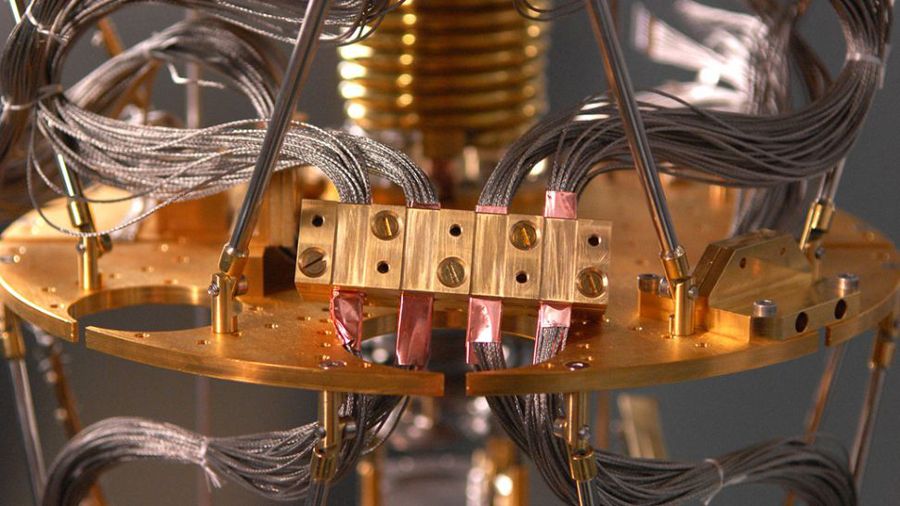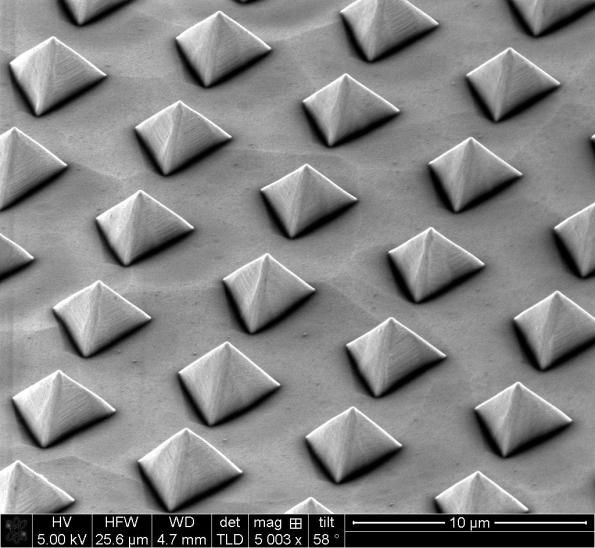Archive for the ‘quantum physics’ category: Page 743
Dec 16, 2016
Does The Universe Have a Hard Drive?
Posted by Philip Raymond in categories: computing, cosmology, physics, quantum physics, supercomputing
Zura Kakushadze is lead author of this peer reviewed paper published by the Free University of Tbilisi. It describes an information paradox that arises in a materialist’s description of the Universe—if we assume that the Universe is 100% quantum. The observation of the paradox stems from an interdisciplinary thought process whereby the Universe can be viewed as a “quantum computer”.
The presentation is intentionally nontechnical to make it accessible to a wide a readership.
Dec 15, 2016
Fast track control accelerates switching of quantum bits
Posted by Karen Hurst in categories: computing, nanotechnology, quantum physics
From laptops to cellphones, technology advances through the ever-increasing speed at which electric charges are directed through circuits. Similarly, speeding up control over quantum states in atomic and nanoscale systems could lead to leaps for the emerging field of quantum technology.
An international collaboration between physicists at the University of Chicago, Argonne National Laboratory, McGill University, and the University of Konstanz recently demonstrated a new framework for faster control of a quantum bit. First published online Nov. 28, 2016, in Nature Physics, their experiments on a single electron in a diamond chip could create quantum devices that are less prone to errors when operated at high speeds.
Dec 15, 2016
This Strange Material Could Reveal The Link Between Classical Physics And The Quantum Realm
Posted by Karen Hurst in categories: materials, quantum physics

https://youtube.com/watch?v=8BhG9ir4-4E
With the help of this material, scientists are a little bit closer to unlocking the mystery of how the rules of the quantum realm translate to the rules of the classical physics of the observable world.
Experts predict that the materials used in this research, topological insulators, will play a key role in furthering this development.
Dec 15, 2016
Researchers discovered elusive half-quantum vortices in a superfluid
Posted by Karen Hurst in categories: particle physics, quantum physics, robotics/AI
This is a nice boost for QC and mimics something that should prove interesting for AI and SynBio technology.
Researchers in Aalto University, Finland, and P.L. Kapitza Institute in Moscow have discovered half-quantum vortices in superfluid helium. This vortex is a topological defect, exhibited in superfluids and superconductors, which carries a fixed amount of circulating current.
‘This discovery of half-quantum vortices culminates a long search for these objects originally predicted to exist in superfluid helium in 1976,’ says Samuli Autti, Doctoral Candidate at Aalto University in Finland.
Continue reading “Researchers discovered elusive half-quantum vortices in a superfluid” »
Dec 15, 2016
Quantum Beard Lights Beard Fairy Lights for Your Next Generation of Beard Ornaments
Posted by Karen Hurst in categories: health, quantum physics
This is just wrong; its a disgrace to all things Quantum.
NEW YORK, Dec. 15, 2016 /PRNewswire/ — Beard Basics offers a full line of men’s beard grooming products as well as a year-round line of their version of beard baubles beard bauble ornaments for Christmas and special occasions. In addition, they offer an everyday line of beard and hair ornaments, glitter beard kits and for 2016, the next generation of beard ornaments, Quantum Beard Lights Beard Fairy Lights.
Beard Basics, a full line of men’s beard grooming products and special occasion items, has been creating and selling men’s beard grooming and their version of beard Baubles with beard bauble ornaments for more than a decade. The company offers a full range of products including holiday, sports-themed and year round beard and hair ornaments. In 2014, the company launched holiday beard ornamentation as part of the beard season awareness for men’s health. Beard Basic’s brand of holiday Beard Bauble Ornaments and glitter beard kits have been copied by many other companies but they are the trend setters when it comes to beards and the first to offer beard ornaments with mini clips.
Dec 15, 2016
Accessible Photon Emission Could Bring Quantum Computing Out of the Lab
Posted by Karen Hurst in categories: computing, information science, internet, mobile phones, quantum physics
Researchers from the Tyndall National Institute in Cork have created micro-structures shaped like small pyramids that can create entangled photons. Does this mean that quantum computers are closer than we realize?
Quantum computers have been the stuff of science fiction for the past few decades. In recent times, quantum computers have slowly become more of a reality with some machines successfully solving real world problems such as games and path finding algorithms.
But why are quantum computers so desired by tech firms and why is there so much research into the field? Silicon has been incredibly loyal to the tech world for the past 50 years, giving us the point contact transistor in 1947. Now, silicon is at the center of technology with computers, tablets, smartphones, the IoT, and even everyday items. In fact, you cannot walk down a city street without being in range of some Wi-Fi network or influence from a small silicon device.
Continue reading “Accessible Photon Emission Could Bring Quantum Computing Out of the Lab” »
Dec 15, 2016
Insight: Toro Rosso backer says F1 teams should pay more attention to cyber attacks // F1 News // James Allen on F1 – The official James Allen website on F1
Posted by Karen Hurst in categories: business, cybercrime/malcode, quantum physics
QC and Formula 1 another opportunity and believer.
In the latest of our occasional series of interviews with interesting players behind the scenes in Formula 1 we meet a Russian scientist, who is keeping the Toro Rosso safe from cyber attacks and who has big plans for using quantum computers to create new F1 materials.
Acronis is a data support and protection business that was founded in 2003. It reportedly has five million personal consumers and 500,000 businesses using its technology in over 145 countries and offers services such as cloud security, data back up and recovery support.
Dec 13, 2016
If You Want To Protect Your Business, You Need To Start Thinking About Quantum Encryption Now
Posted by Karen Hurst in categories: business, encryption, internet, quantum physics
Nice write up about why businesses need to worry about QC sooner v. later. Glad to see more spreading the word.
It’s coming sooner than you think.
Dec 13, 2016
Defense applications ripe for quantum computing
Posted by Karen Hurst in categories: computing, quantum physics
Lockheed Martin has been experimenting with quantum systems to speed verification and validation of mission-critical software.

















